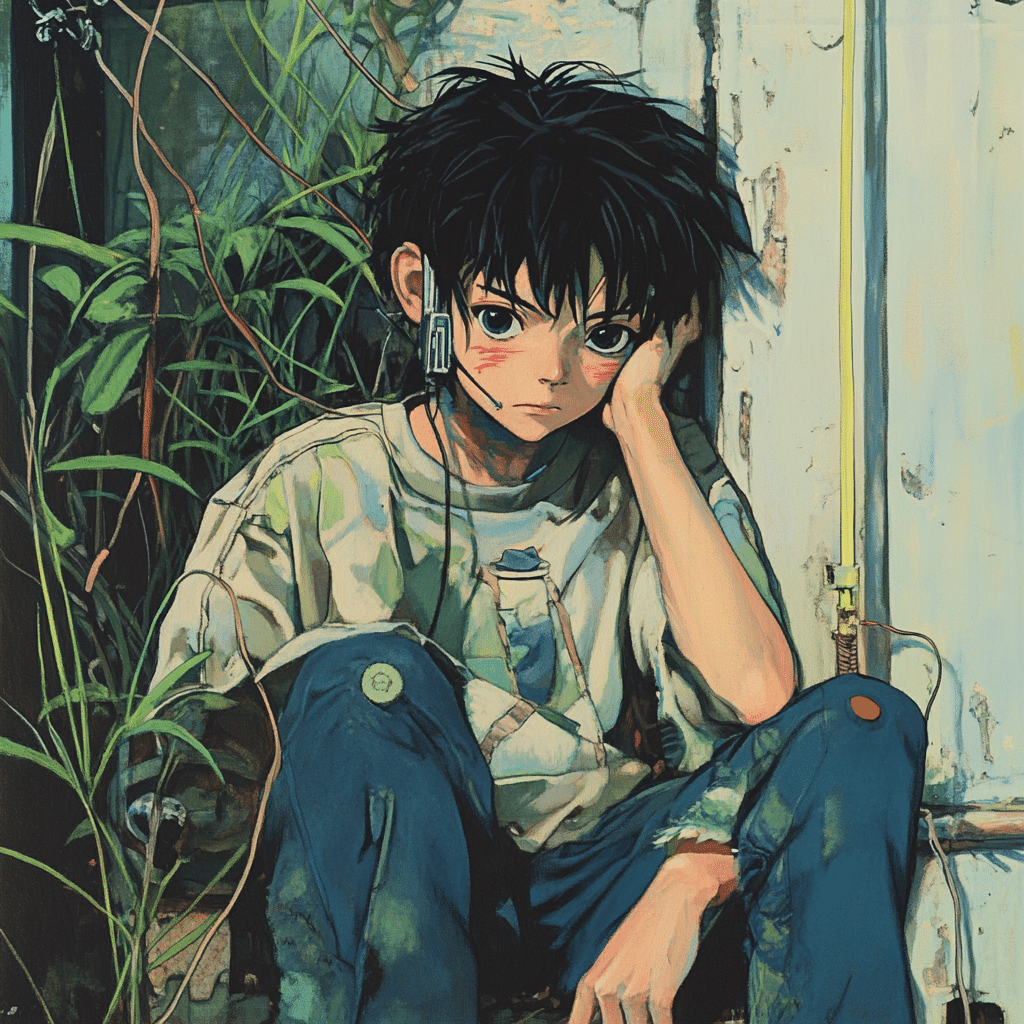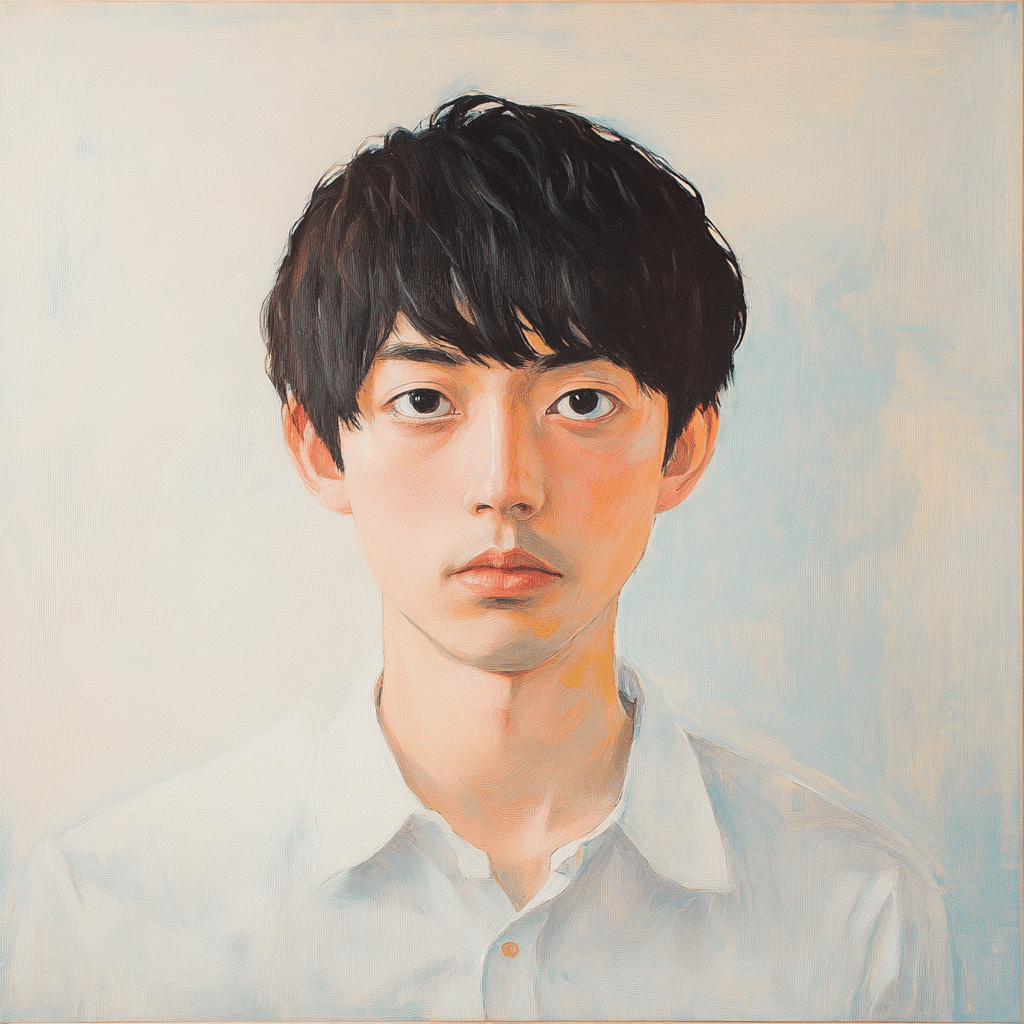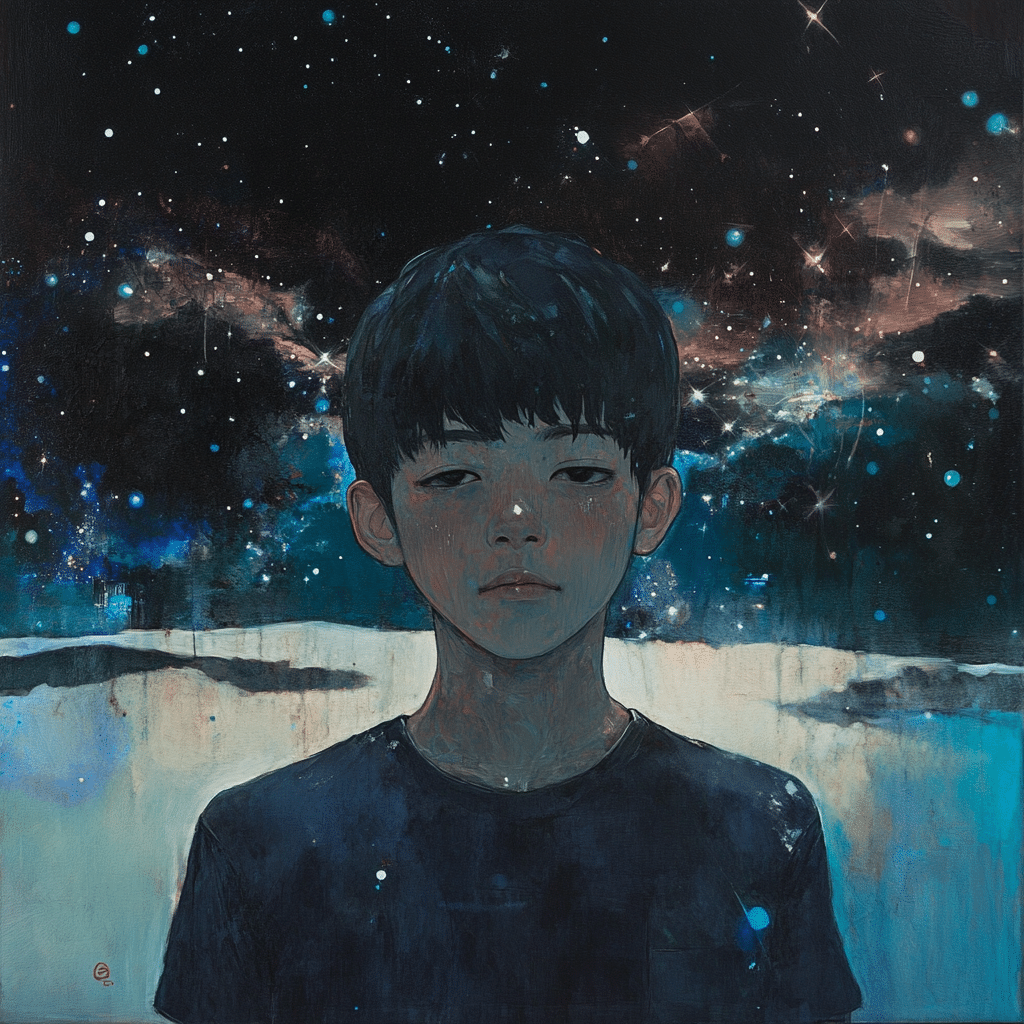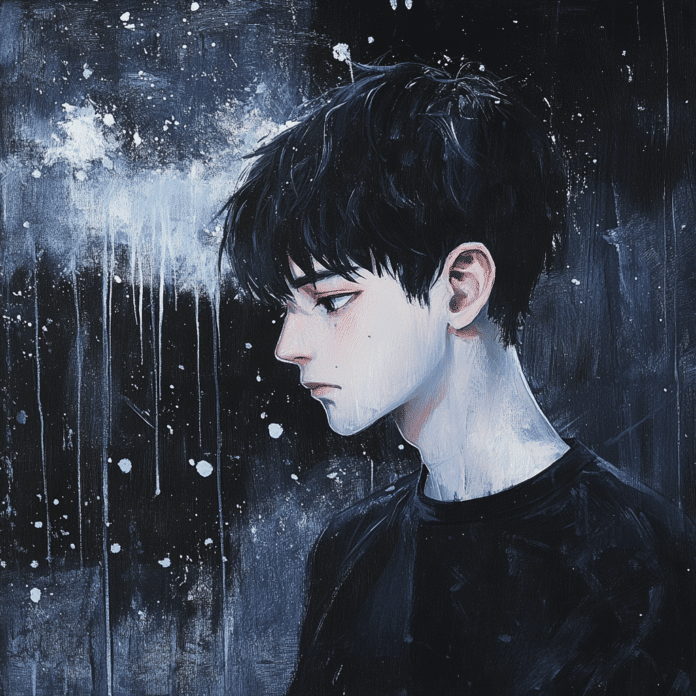Shinji Ikari, the enigmatic protagonist of the iconic anime series “Neon Genesis Evangelion,” takes us on a wild ride through emotional turmoil, self-doubt, and reluctant heroism. His journey is anything but straightforward; it’s a full-throttle exploration of psychological depth and societal expectations. There’s no sugar-coating it—Shinji’s life is riddled with chaos and conflict, which makes his path to growth all the more compelling. If you’ve ever felt weighed down by expectations or found yourself grappling with acceptance, you’re not alone. Let’s break down seven crucial aspects of Shinji’s character arc that shed light on his struggles and triumphs, while drawing parallels with other iconic characters like Madara Uchiha from “Naruto” and the relatable figures in “Tsurezure Children.”

1. The Burden of Expectations in Shinji Ikari’s Life
For Shinji, the pressure to pilot the Evangelion is like carrying the weight of the world on his shoulders, largely due to his father, Gendo Ikari. Imagine being a teenager faced with the task of saving humanity while also trying to gain your parent’s approval. Oof, right? This is where we see parallels with Madara Uchiha, who, just like Shinji Ikari, finds himself shackled by the ideals and legacy of his clan. The constant conflict between their destined paths and personal desires raises serious questions about free will versus predestination.
Shinji’s internal struggle with this pressure creates a compelling drama that invites us into his emotional world. It’s as if he’s walking a tightrope, trying not to fall into despair while balancing everyone else’s expectations. This burden resonates deeply with audiences, reminding us that many of us feel the weight of our own expectations in various aspects of life.

2. The Isolation of the Reluctant Hero: Shinji’s Emotional Landscape
Ah, isolation. It’s a word that seems to be too familiar for many of us, isn’t it? Shinji embodies this feeling effortlessly. His strained relationships, particularly with his father and the other pilots, lead him to a lonely existence, echoing his emotional landscape. Not to mention, the characters in “Tsurezure Children” also encounter their fair share of emotional hurdles, making us wonder if connection is ever truly within grasp.
Shinji’s reluctance to bond with others only deepens his despair. When he’s given the chance to connect, he often shies away. This dynamic is frustrating but painfully relatable. It’s a stark reminder of how personal connections can serve as both a lifeline and a barrier to our growth. If only Shinji could see that opening up might not be such a terrifying endeavor!
3. Growth Through Pain: Shinji’s Transformation
Growth and pain are often two sides of the same coin, and Shinji’s character is a prime example. Each confrontation with the Angels is not just about saving humanity; it’s a physical manifestation of his internal battles. With every fight, he grapples with his feelings of self-worth and desire for validation, paralleling Madara Uchiha’s relentless quest for power through conflict.
Shinji learns that pain can act as a catalyst for transformation. Rather than merely dragging him down, this suffering compels him to confront his fears and insecurities. Just like a butterfly emerging from a chrysalis, he begins to realize that these experiences shape who he is. Pain doesn’t just mark a setback; it propels him forward on his journey.
4. The Dichotomy of Hope and Despair in Shinji’s Decision-Making
Shinji’s indecisiveness often leaves him caught between hope and despair. Each choice he faces is like standing at a fork in the road—will he take a step toward vulnerability or retreat into isolation? This inner conflict resonates with themes explored in the narratives of both Shinji and Madara. They often arrive at their own definitions of purpose through opposing choices.
When the chips are down, Shinji must decide if he’ll rise to the occasion or let his fears overwhelm him. This constant tug-of-war showcases the profound struggle between the light of hope and the shadow of despair. It’s a reflection of our own decision-making processes and highlights how our choices shape our destinies.
5. The Role of Relationships in Shinji’s Development
Relationships are central to Shinji’s growth as a character. Friendship and companionship—themes prevalent throughout Neon Genesis Evangelion—play a significant role in shaping who he becomes. This mirrors the dynamics seen in “Tsurezure Children,” where characters navigate love and friendship with varying degrees of success.
Shinji’s relationships are a double-edged sword. On one hand, they offer moments of hope and connection; on the other, they amplify his struggles. This highlights how relationships can influence personal growth and emotional breakthroughs—or lead us deeper into our struggles. It’s a cache of lessons on how we navigate love and friendship, a rollercoaster ride worth experiencing.
6. The Impact of Trauma on Characterization: Shinji vs. Madara
Both Shinji and Madara are products of their traumatic experiences, shaping their perceptions of the world. On one hand, Shinji wrestles with abandonment and existential dread, while on the other, Madara embodies anger and bitterness from loss and betrayal. This juxtaposition opens up a riveting conversation about how trauma can shape heroes in vastly different ways.
Shinji’s trauma leads him down a path of self-questioning, making him a deeply relatable character. Meanwhile, Madara’s trauma manifests in a more aggressive pursuit of control, often alienating himself from others. This contrast invites viewers to reflect on how trauma doesn’t simply define us; it can also shape our choices and paths in life.
7. Redemption and Acceptance: The Ultimate Goal of Shinji Ikari
In the grand tapestry of Neon Genesis Evangelion, Shinji’s journey culminates in a search for redemption and self-acceptance. As the series unfolds, we witness his heartfelt evolution from denial to a fragile embrace of who he is. This mirrors Madara Uchiha’s tragic choices as he seeks understanding and reconciliation on his own terms.
Shinji’s resolution offers powerful insights into heroism, emphasizing that true strength lies in vulnerability and acceptance. It serves as a reminder that every hero, regardless of their journey, battles personal demons and seeks connections that validate their existence.
Navigating the Reluctant Hero’s Path: A Shared Human Experience
Shinji Ikari’s journey as a reluctant hero is a stunning exploration of the human condition. Through the lens of societal expectations, trauma, and the quest for connection, we peel back the layers of his character, revealing complexities that echo across various narratives in anime. Notably, by comparing him to figures like Madara Uchiha and relatable characters in “Tsurezure Children,” we invite audiences to reflect on their struggles with identity, purpose, and relationships.
Ultimately, every hero’s journey mirrors our shared human experience. Shinji’s story encourages empathy for those grappling with their own internal battles. And just like Shinji, we too can strive for connection in a world that often feels isolating, learning that growth comes from confronting our fears and embracing our true selves.
For those on a similar quest for inspiration, following the journeys of public figures like Yvonne Chapman and Allie Beth stuckey can remind us of the strength found in vulnerability. Let’s uplift ourselves by recognizing that the challenges we face echo across generations—much like the tales spun through captivating animes like Asobi Asobase and the emotional intricacies captured in The Wife between us. Whether you’re interested in fitness, drama, or romantic connections, the tapestry of life reflects our complexities in beautiful ways.
So, the next time you find yourself feeling like a reluctant hero, remember Shinji Ikari and the journey we’re all forging through—in the end, we share more than we think.
Shinji Ikari: The Complex Journey of a Reluctant Hero
The Duality of Shinji Ikari’s Character
Shinji Ikari’s journey is fraught with emotional depth and intrigue that resonates with many fans of the genre. Did you know that anime has been a significant cultural export, influencing styles and narratives worldwide? The character of Shinji, as a reluctant hero, reflects the struggles many young adults face as they grapple with identity and expectations. His evolution mirrors real-life experiences of feeling lost, a theme echoed even in the more challenging landscapes shown in series like Anime Sama, where characters often face existential dilemmas.
Moreover, Shinji’s voice actor, a highly skilled performer, brought a unique blend of vulnerability and strength to the role, contributing to the character’s popularity in the anime community. Just as Aimee-ffion Edwards captivates audiences with her performances, so too does Shinji’s portrayal evoke empathy and introspection. It’s fascinating to see how storytelling can connect with viewers, aligning Shinji’s inner conflicts with those of real-world figures who demonstrate resilience, like Ashleigh Murray.
The Setting and Its Impact
Set against the backdrop of a post-apocalyptic world, Dieppe France offers an evocative atmosphere that amplifies Shinji’s struggles. Encounters with other characters in this desolate setting illustrate the highs and lows of human emotion and connection. The production values of the series really shine, showcasing details reminiscent of a finely crafted tapestry, much like the best female fitness model showcased in various media, who often exhibit the relentless pursuit of perfection.
Critics and fans alike have praised the anime for its visually stunning scenes and profound storytelling that delve into psychological themes. It’s not just about giant robots battling each other; the underlying narrative focuses on the importance of personal growth and the connections we forge. Shinji’s path to becoming the hero he was initially reluctant to be unveils layers that resonate deeply with audiences, drawing parallels to life’s uncertainties in a profound fashion. Shinji Ikari’s journey reminds us that everyone, no matter their struggles, has the potential to rise above challenges.




